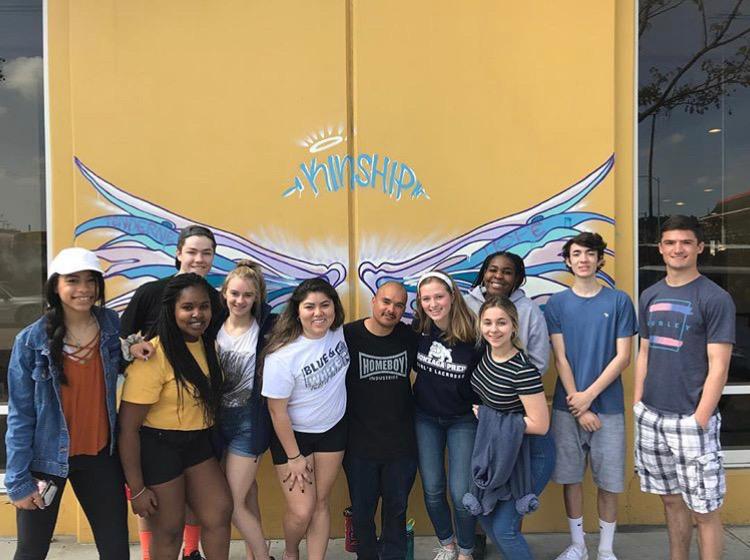During spring break thirty students and six faculty members embarked on the travel portion of the Gonzaga Prep Margins program. Margins spends six-months of the year studying U.S. social justice issues. Toward the end of those six weeks and during spring break three groups of students and faculty travel to do hands-on justice work. The program focuses on issues such as environmental justice, poverty, recidivism, mass incarceration, racism, food inequality, climate change, gang violence, and much more. The goal of this program is to enact change in Spokane and beyond.

The Margins: Los Angeles program focused on studying the criminal justice system. Specifically, the group has spent time evaluating and investigating the experiences of the incarcerated, undocumented, and homeless in the United States. The group spent time in inner-city and downtown L.A. learning from former gang members at Homeboy Industries and meeting with the Loyola Law Clinic and Anti-Recidivism Coalition.

Margins: New Orleans focused their time on economic justice, evaluating and investigating the complexities of economic influence through poverty, disaster recovery, and extreme gentrification/segregation. The group met with recent Mayor Mitch Landrieu, served at Ozanam Inn, and spent time with young men from Son of a Saint. During their time in New Orleans the group was joined by Gonzaga Prep alum Steve Gleason ‘95.

The study of environmental justice brought the third group of students and faculty to San Francisco, California. Margins: San Francisco evaluated and experienced the natural, ecological, and social impact of our environmental conditions. The group did habitat restoration on Ocean Beach and Slide Ranch, they learned about urban farming at Urban Adamah, they hiked and marveled at Muir Woods, and met with student environmental advocates at UC Berkeley. Much of the work these students and faculty did led to new understandings of the intersection and marginalization of critical environmental issues.
“The trip really changed my perspective on the environment,” said Joel Meyer ‘19. “I had heard about environmental issues before, but never thought they mattered. Through all the activities that we did on the trip I realize that it does matter, and in so many different ways. For example, the beach clean up we did, we learned there is way too much plastic in the ocean -- enough to cover the United States. We can’t get rid of carbon because we need it, but we can get rid of plastic. We don’t need it and that is one thing I think we can all get behind.”
After returning from their trips the students and faculty members have spent the remaining weeks of their studies learning from each other. Each year a new group of students and faculty have the opportunity to experience this dedicated social justice work.
Find out more by visiting www.gprep.com/serve
Contact a Christian Service coordinator at [email protected].
Make a contribution to this program